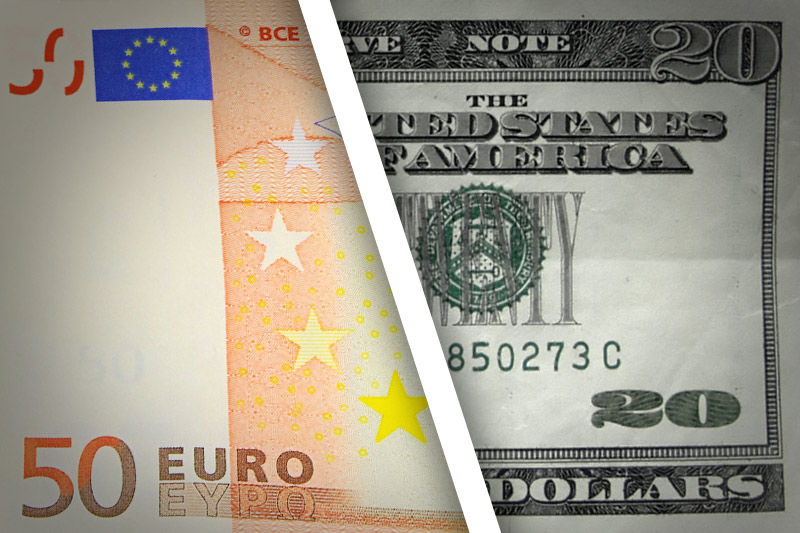Investing.com -- The U.S. dollar posted modest gains against the euro on Monday, as currency traders awaited a possible deal regarding Iran's nuclear program, as well as the release of a highly-anticipated U.S. jobs report at the end of the week.
Strong U.S. data coupled with continuing tension in Greece, as well as a potential expansion of the quantitative easing program in China factored into the slight strengthening of the dollar.
EUR/USD fell 0.51% or .0056 to 1.0834 on a light day of trading. The pair reached a high of 1.0895 in European afternoon trading, before falling to a daily-low of 1.0815 hours later. On Friday, there was little movement with the pair following Janet Yellen's speech at the Federal Reserve Bank of San Francisco Conference.
EUR/USD likely received support at 1.05 its low from Mar. 11 and resistance at 1.14 its high from mid-February.
A U.S. State Department spokesman said on Monday afternoon that there's a "50-50 chance," an agreement with Iran will be reached by Tuesday night's deadline. While oil futures spiked shortly after the announcement, it had little effect on the currency pair.
Elsewhere, strong housing numbers and encouraging personal income data led to mild increases in the dollar on Monday. The U.S. Department of Commerce reported that personal income last month rose 0.4%, above expectations for a 0.3% increase. In addition, a report from the National Association of Realtors found that contracts to purchase previously owned homes, soared 3.1% in February, significantly exceeding expectations of a 0.4% rise.
The U.S. Dollar Index, which measures the strength of the greenback versus a basket of six other major currencies, increased 0.68% to 98.28.
Earlier on Monday, People's Bank of China governor Zhou Xiaochuan remarked that there might be room in the Chinese economy for additional monetary easing. The possibility that a struggling Chinese could require a boost from a stimulus program by its central bank could have sent investors fleeing to U.S. sovereign debt.
Yields on the U.S. 10-year inched up 0.001 to 1.949, while yields on the U.S. 30-year rose 0.022 to 2.549. Yields on the Germany 10-year remained relatively unchanged at 0.21.
In Helsinki, German chancellor Angela Merkel indicated that Greece would not receive any further aid until it revised a list of proposed reform measures it submitted to its euro zone creditors on Friday. The measures are considered essential for Greece to receive a financial lifeline that could allow it to stave off bankruptcy.
